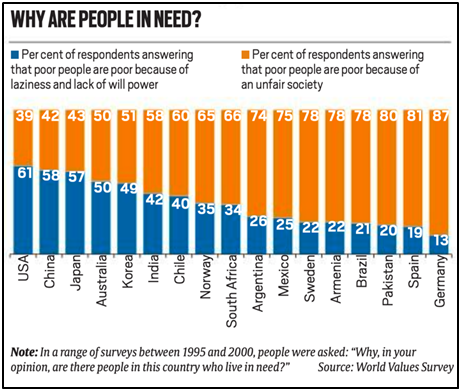Universal Basic Income Programme
05-01-2024
09:18 PM

What’s in Today’s Article?
- Background
- Are Schemes like NYAY and PM-KISAN the same as Universal Basic Income (UBI)?
- Why has UBI not been Implemented in India, and is not Popular elsewhere?

Background
- President of a prominent political party told an election rally that if voted to power, his party would implement the NYAY scheme under which women would receive at least Rs 60,000-70,000” annually.
- Earlier, in 2018, the then government had rolled out the Pradhan Mantri Kisan Samman Nidhi (PM-KISAN) to provide income support of 6,000 per year in the three equal installments to all land holding farmer families.
- PM-KISAN was billed as the world’s largest Direct Benefit Transfer (DBT) scheme for farmers.
Are Schemes like NYAY and PM-KISAN the same as Universal Basic Income (UBI)?
- Under UBI, a government provides a basic income to every member of a population, from richest to the poorest, regardless of whether they are employed or not.
- However, the government withdraws all subsidies – from food to fertilizes to train tickets to medical bills.
- The idea is to give everyone a minimum income, cut the bureaucratic costs of running a large number of welfare programmes, and to tax everyone in a way that the UBI is funded.
- On the other hand, PM-KISAN and NYAY programmes are different.
- One, they are not accompanied by the removal of existing subsidies or benefits of other social welfare schemes for their beneficiaries.
- Two, the amount is much smaller than what can be considered a minimum or basic income needed to live a decent life.
- Three, these schemes are targeted at specific groups of Indians; they are not universal.
Why has UBI not been Implemented in India, and is not Popular elsewhere?
- In rich countries like Switzerland, which considered and dropped the idea, the UBI amount be quite a lot, even though the beneficiary population may be small.
- And in poorer countries, the amount would be smaller, but the population perhaps too large.
- Also, cutting existing subsidies and raising taxes to fund the UBI would be politically unpopular ideas almost everywhere.
- Arguments in favour of UBI:
- UBI reduces poverty and income inequality, and improves physical and mental health.
- UBI leads to positive job growth and lower school dropout rates.
- UBI guarantees income for non-working parents and caregivers, thus empowering important traditionally unpaid roles, especially for women.
- Arguments against UBI:
- UBI takes money from the poor and gives it to everyone, increasing poverty and depriving the poor of much needed targeted support.
- UBI is too expensive.
- UBI removes the incentive to work, adversely affecting the economy and leading to a labor and skills shortage.
Q1) What is a Welfare State?
A welfare state is a form of government in which the state (or a well-established network of social institutions) protects and promotes the economic and social well-being of its citizens, based upon the principles of equal opportunity, equitable distribution of wealth, and public responsibility for citizens unable to avail themselves of the minimal provisions for a good life.
Q2) What is the role of the Ministry of Social Justice & Empowerment?
The Ministry of Social Justice & Empowerment is entrusted with the welfare, social Justice and empowerment of disadvantaged and marginalized section of the society viz. Scheduled Caste, Backward Classes, Persons with Disabilities, Senior Citizens, and Victims of Drug Abuse etc.
Source: ExplainSpeaking | Nrega, Nyay and PM-Kisan: Why do politicians rush to give direct benefits (cash) to the poor? | HT

